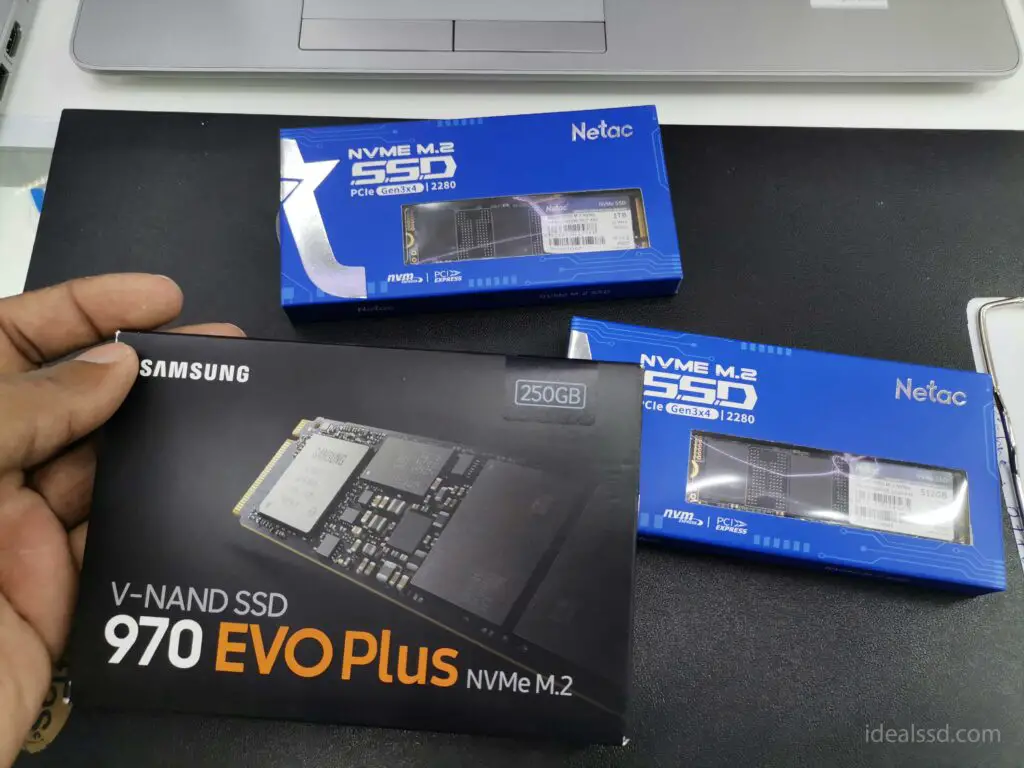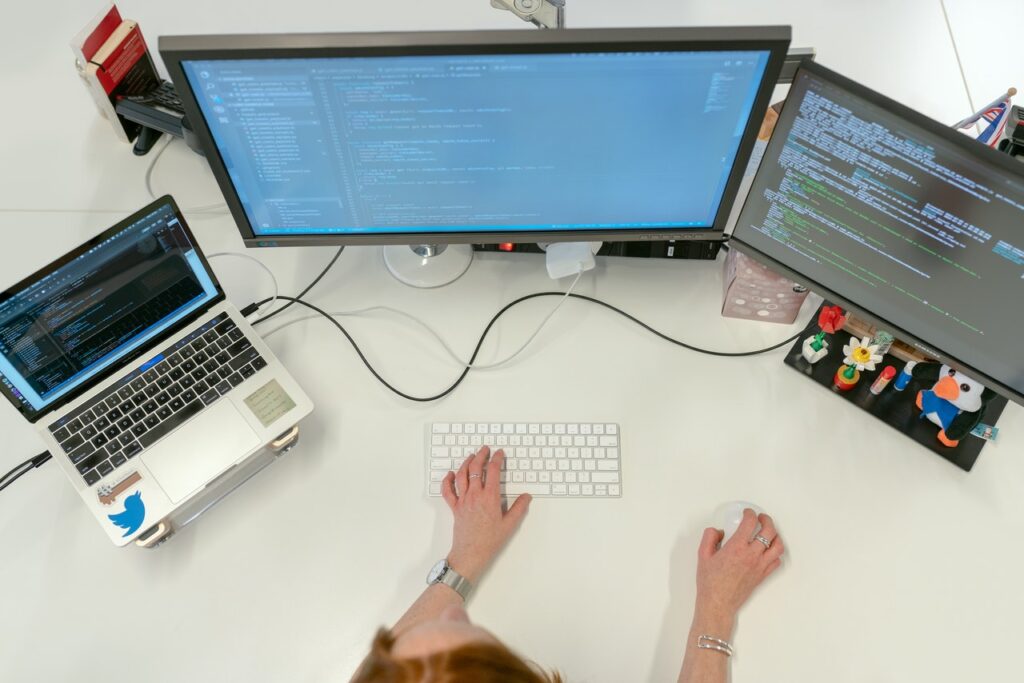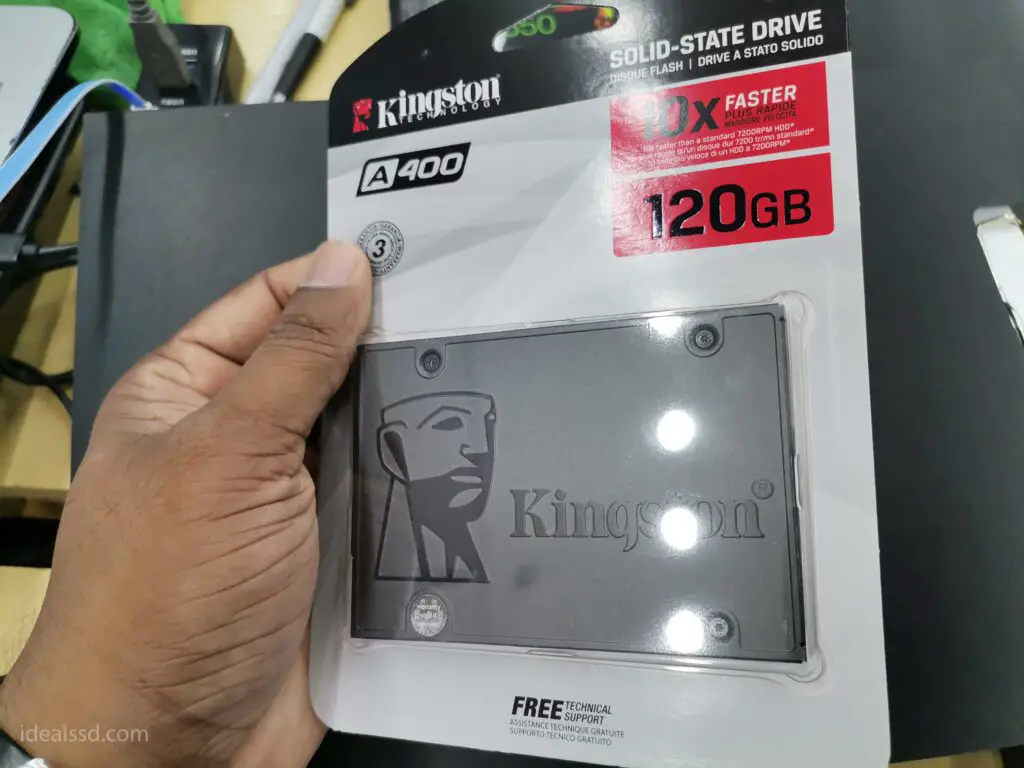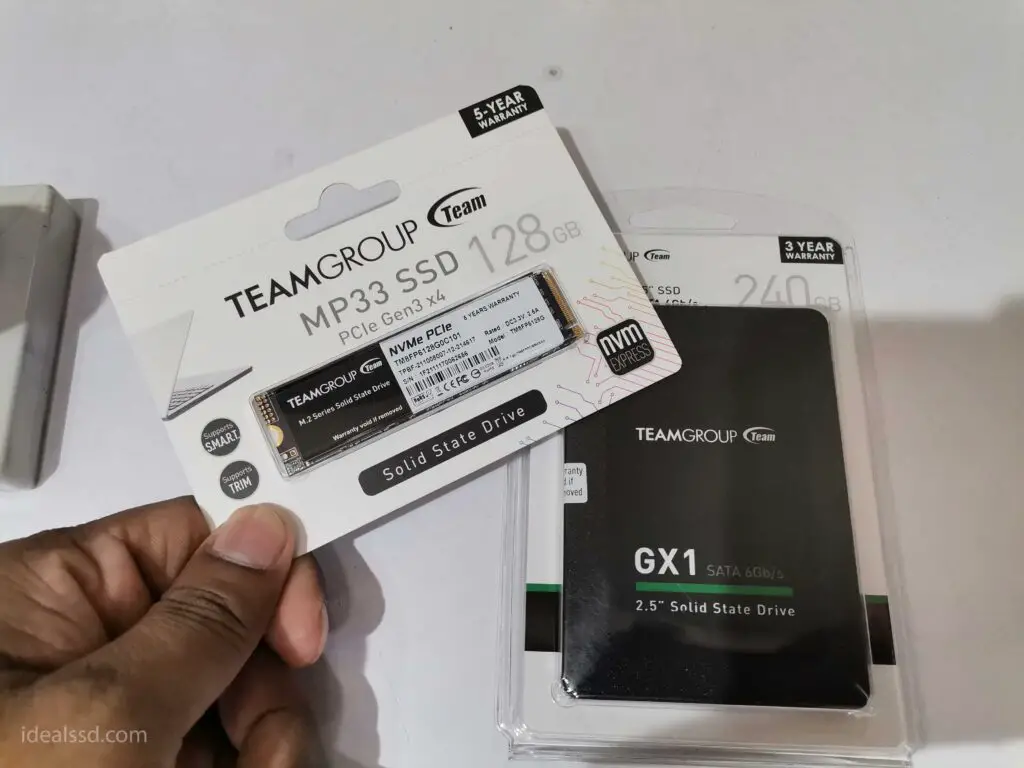How Much SSD Is Required for Programming? Final Verdict

Are you a programmer who is looking for a new laptop? If so, you may wonder how much SSD storage space is required. This blog post will look at the minimum amount of SSD storage needed for programming. As a computer engineer since 2012, I can give you some valuable tips to help guide your purchase.
How much SSD space is required for programming will depend on the specific type of programming you are doing. However, in general, by considering all the installations, downloads, and free space you will need to allocate, it is safe to say that 500GB of SSD space should be enough for most programmers. For NVME drives go for WD Black SN750, Sabrent Rocket Q (8TB) and For SATA go for Crucial MX500
What Is SSD Storage and Why Do Programmers Need It?

SSD, or solid-state drive, storage, is a type of computer memory that uses integrated circuit assemblies as memory to store data persistently. Specifically, it uses NAND chips to store the data. SSD technology uses less power which results in longer battery life and has faster data access and lower heat production.
The benefits of using an SSD always outnumber the cons. The only difficulty when someone prevents using an SSD could be its price. It is a fact that SSDs are more expensive than HDDs in terms of dollars per gigabyte.
If you are a programmer like me, you already know the importance of speed and efficiency. So, investing in an SSD can be very beneficial. Not only it improve your computer performance, Not only does it improve your computer performance, but it also makes your programming workflow smoother. We’ve all been there: when it takes a long time to debug or render something, we’re all irritated. SSDs are more rugged and can withstand being dropped or bumped around more than a traditional hard drive.
So if you want to know more about SSD vs HDD, refer to my below articles.
- Reasons to Consider Replacing Your Traditional Hard Drive With an SSD
- SSD or HDD: Which Is Right for You?
Type of Developers (Programmers)

If I ask you how much food need to survive? The answer would differ for each person because it depends on many factors such as age, weight, and activity level. The same goes for SSD storage space. The SSD storage requirement will depend on the type of programmer you are and what type of programming you do.
For example, if you are a web developer who mainly codes in HTML, CSS, and JavaScript, you will need less storage than a programmer who is rendering games. This is because web development generally requires less storage space than other types of programming. However, you may need more storage space if you are working on large projects or storing a lot of data.
Here are examples of how much storage is needed for each developer category. Please note that these are just rough measurements.
| Programmer Type | Storage Size |
|---|---|
| Frontend developers (UI/UX) | 500GB – 1TB |
| Backend developers | 500GB – 1TB |
| Database engineer | 500GB – 1TB |
| Language/Compilers Developer | 500GB – 1TB |
| Embedded System Developers | 500GB – 1TB |
| Operating systems Developer | 1TB – 2TB |
| Data Scientist | 1TB – 4TB |
| Video game developers | 1TB – 8TB |
| Mobile Application Developers | 500GB – 1TB |
| System administrators | 500GB – 1TB |
| Full Stack Developer | 500GB – 2TB |
Front-End Developer
A front-end developer is responsible for designing, layout, and coding websites and applications. They use a variety of programming languages and web technologies to create user-friendly and responsive interfaces. To be successful in this role, a front-end developer must have a strong understanding of how web browsers work and how to use various programming languages to create effective code.
They must also be able to work closely with other development team members, such as back-end developers, designers, and project managers. Front-end development is a rapidly growing field, and there is an increasing demand for developers with the skills to create innovative and user-friendly websites and apps. The latest web technologies include React.js, Angular.js, and Vue.js.
SSD Requirement : 500GB – 1TB
Backend Developer
A backend developer is responsible for the server-side web application logic, and integration of the work front-end developers do. They ensure that the data stored in the database is consistent and accessible. A backend developer should have a good working knowledge of programming languages such as JAVA, C#, PHP, and Python. These are just a few programming languages. There are many more. Click this link to see the full list of programming languages.
SSD Requirement : 500GB – 1TB
Database Engineer
A database engineer is responsible for ensuring the smooth operations of a database. This can include designing databases, managing user access, and developing backup systems. Database engineers must have a strong understanding of database management systems and the application software that interacts with the database. They must also be able to troubleshoot problems and optimize performance.
Oracle, MS-SQL, MySQL, and Mongo DB are some of the most popular relational database management systems (RDBMS) used by developers today. While each has its features and capabilities, they all share one common goal: to store and retrieve data efficiently.
SSD Requirement : 500GB – 1TB
Language/Compilers Developer
A language/compilers developer is responsible for developing programming languages and compilers. They design and implement programs that convert code written in one language to another language or machine code. They also develop libraries that other programmers can use to make their own code more efficient. So these developers may also need better storage to keep all the data.
SSD Requirement : 500GB – 1TB
Embedded System Developers
Embedded system developers are responsible for designing, developing, and testing embedded systems. These systems are used in various applications, including automotive, aerospace, industrial, and consumer electronics.
They must be proficient in programming languages and understand the hardware and software of embedded systems. In addition, they must be able to work with other engineers to integrate the system into the final product. Embedded system developers typically work in research and development teams. They may also work in quality assurance or product support.
SSD Requirement : 500GB – 1TB
Operating Systems Developer
Operating systems developers create and maintain the software that manages all of the hardware and software resources in a computer system. They design the system’s overall structure and individual subsystems and components. In addition, they develop new functionality to improve the efficiency and performance of the system.
Operating systems developers must have a strong understanding of computer architecture and programming languages. They must also work effectively with teams of engineers to plan, design, and implement complex systems.
They work on the kernel, drivers, and user interface of operating systems such as Windows, MAC OS, and Linux-based systems such as Ubuntu, Fedora, and Redhat. So to install these different OSs in virtual environments, We use software like VMware Workstation and VirtualBox, they need more and more storage spaces than ever.
SSD Requirement : 1TB – 2TB
Data Scientist
A data scientist is someone responsible for analyzing and interpreting complex data sets. In many cases, data scientists work with large organizations to help them make better decisions. To be a data scientist, one must have a strong understanding of statistics and computer science. In addition, data scientists must be able to effectively communicate their findings to those who may not be familiar with the technical jargon.
While the job of a data scientist can be challenging, it is also very rewarding. Those who are able to effectively use data to solve problems can make a very positive impact on the world. Maybe these data may be in the form of images, videos, or text. So the size may depend on what kind of data they are working on.
SSD Requirement : 1TB – 4TB
Video Game Developers

Video game developers are the creative minds behind the systems and games we enjoy. Video game developers are responsible for designing, developing, and testing video games. They usually have a team of programmers, artists, and designers who work together to create the final product. The developers must come up with the initial idea for the game and its features and oversee the production process to ensure that everything runs smoothly.
While many see video game development as a fun and rewarding career, it can also be challenging. Developers must be able to work within strict deadlines and budget constraints, and they must be able to troubleshoot any problems that arise during production. However, for those passionate about gaming, there is no better job in the world.
Today game industry uses game engines such as Unity and Unreal Engine for developing games. These engines are very resource intensive. Also, the realistic graphics of the latest games need a lot of storage.
SSD Requirement : 1TB – 8TB
Mobile Application Developers

Mobile application developers design, create and maintain apps for smartphones and other mobile devices. They work with various programming languages and tools to create user-friendly, reliable, and efficient apps. In addition to strong technical skills, mobile app developers must also have a good understanding of user experience and interface design.
To develop these apps, they need SDKs (Software Development Kits) for platforms such as iOS, Android, and Windows Phone. These kits are large and need a lot of storage space.
SSD Requirement : 500GB – 1TB
System Administrators
System administrators are responsible for the day-to-day operation of computer systems. This includes ensuring that systems are running smoothly, troubleshooting issues, and system security is up to date. In large organizations, system administrators may also be responsible for managing teams of support staff. System administration is a complex and ever-changing field, requiring administrators to keep up with the latest technological changes.
They install new software, troubleshoot issues, and perform regular maintenance tasks. They need a lot of knowledge about different operating systems and applications.
SSD Requirement : 500GB – 1TB
Full Stack Developer
A full stack developer is a computer programmer who is comfortable working with all aspects of a web development project, from front-end design to back-end coding. Full stack developers are often involved in the entire software development process, from creating user interfaces to writing code that powers the application.
While they may not be experts in every area, they have a good working knowledge of all the parts of a web development project and how they fit together. Full stack developers are in high demand because they can take a project from start to finish without needing to rely on other team members. So this type of developer tends to everything.
SSD Requirement : 500GB – 2TB
Why More SSD Storage Space Matter For a Programmer?

So above, I have discussed the basic storage requirements for different types of programmers. As you can see that most of them need at least 500GB of solid-state drive (SSD) storage. And it is recommended to have more than that to be on the safe side.
Well, you can get the lowest SSD size to fit your needs. To install all the software, you may need only 100GB. So you may think if you get a 128GB SSD, you will be good for years to come. But that’s where you’re wrong, my friend.
Here are the reasons, the more you space have on your SSD, the better.
- Your OS needs the space, too: If you are a windows user the OS will probably take around 64 GB or greater. So if you have 128GB SSD, the leftover space will be (128-64) 64GB and it will be very less for you to install other applications and save your data.
- SSD must have free space to run smoothly: if you are using an SSD, you have to keep free space on the drive because if the drive is full, it will start to slow down. So for a 128GB SSD, you should keep at least 25% free space, which means 32GB. If you are using a 256GB SSD, then you should keep at least 50GB free. To know more about this, refer to the article Does SSD Free Space Affect Performance?
- Limited M.2 Slots: Developers are using laptops for their work, and to keep the portability of the laptops, they come with only one M.2 port or maybe 2. Sure, if you have a desktop PC you will have plenty of options to add more than one SSDs but for a laptop, you have to choose one SSD or two, which gives you more storage and more performance. Refer How to Add an SSD to Your ASUS TUF A15 Laptop
- Space for other Apps & downloads: When you do coding, you are constantly downloading new tools, libraries, and frameworks. And those quickly fill up your SSD space. Not to mention all the projects you are working on.
- Store Photos & Multimedia: Developers are not robots. You are not doing coding all day alone. You may want to download and watch some movies or listen to music. And those multimedia files are big. So you will need some extra space for those as well.
- To Play Games: Come on admit it. We all love computer games. Some people get high-end laptops or gaming PCs just to play games. Since you are a developer that doesn’t stop you from playing games. But if you are looking for the best gaming experience, you will need a very good graphics card and processor. But from a storage aspect, you need space to store those.
So What I want to tell you is to get the biggest SSD size that you can afford. If you have the budget go for the highest one.
Should people upgrade RAM or SSD for programming?
One of the most common questions asked by computer owners is whether they should upgrade their RAM or SSD. Well, both types of upgrades can improve the performance of a computer, but they each have different advantages and disadvantages.
For example, upgrading to a larger SSD will generally result in faster boot times and shorter load times for programs. Because the larger the SSD the read and write speed will increase too. Also, it will allow you to keep more programs and files on the computer without filling up the storage.
On the other hand, upgrading your RAM will allow you to keep more programs open at once without slowing down your computer.
When you do programming you have to build your app, run it on a simulator or device, and debug it. All of this uses memory. If you are a game developer you need to render the game at a high frame rate, which also requires a lot of memory. So if you don’t have enough RAM, your computer will start to lag and run slowly.
If you are constantly running out of memory and having to close programs, then upgrading your RAM would help alleviate that issue. So as a programmer I am vouching to upgrade both.
On my PC I have 16GB of RAM and 512 GB of SSD Storage. I am mainly doing C# and working on the .net platform. Since I have good storage I partitioned the SSD. So I can store movies and multimedia files on one partition and software on another one and different client projects on another partition.

I wrote an in-depth article regarding this, please check it out: What Makes a Computer Faster RAM or SSD?
What is the advantage of NVMe SSD for programmers?
Programming today is a complex and resource-intensive process. In order to write efficient code, programmers need access to powerful hardware. One of the most important components of a programmer’s workstation is the storage system.
Solid state drives (SSDs) are now the standard for high-performance storage, and NVMe SSDs offer the best possible performance. NVMe stands for “non-volatile memory express,” and it is a new interface specification for SSDs. NVMe drives are much faster than traditional SATA SSDs, and they offer significant advantages for programmers.
If you take a SATA SSD its read and write speeds will be around 550 MB/s, and an NVMe drive will offer read and write speeds of up to 7000 MB/s.
With NVMe SSDs, programmers can compile code faster, run simulations more quickly, and load large data sets more efficiently. In today’s competitive market, every advantage counts, and NVMe SSDs give programmers the edge they need to be successful.

If you are looking for NVME SSDs I strongly suggest buying these brands as I am very familiar with these products: WD BLACK SN750, Sabrent Rocket Q (8TB). These are all great drives that will offer you the best possible performance.
If you want to know more about NVME SSDs refer to the below articles.
- What Is NVME SSD? The Future of Solid State Drives
- Highest Capacity NVME SSDs Available In 2022
- Best 1TB NVME SSDs Under $100
I hope this article was helpful for you in deciding how much SSD storage you need for programming. If you have any questions or suggestions, please feel free to leave a comment below.
References
- How much SSD will need for programming: https://www.quora.com/How-mch-SSD-is-required-for-a-good-programming-laptop

